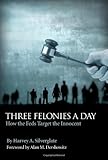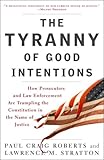1) “I have nothing to say, officer”. 2) I don’t consent to searches”.
are the most important sentences to deal with police. Listen to a law school professor, a policeman, a human rights organisation. They all say the same
Police: a dangerous threat to be avoided? Why can’t we cooperate with police?
You always have the right to refuse police searches (“Officer, I don’t consent to any searches”) and refuse to answer questions without a lawyer present. (“I have nothing to say. I want to see a lawyer.”) […]
No Warrant, No Search!
The Supreme Court has ruled that the home is entitled to maximum search protection. Even if they have probable cause to believe something illegal is going on inside your home, the 4th Amendment requires police to get a signed search warrant from a judge to legally enter and search. flexyourrights.org/faq
This advice makes us cringe: as honest, law abiding citizens, we want to cooperate with law enforcement, so they can track down violent dangerous criminals and terrorists. But collaboration with police endangers our own safety and gets us into jail?
A law abiding honest citizen has to avoid talking to police? Must refrain from helping police work? The good citizen has to make it harder for police to find the real criminals by refusing to cooperate! Why can’t an honest citizen collaborate with police, so they can find criminals and terrorists?
What is wrong here? In the “Don’t talk to Cops #1” video, a law school professor explains, that even a hard core criminal lawyer could get himself trouble, if he talked to police. There are so many laws. You might be found a felon for possessing a lobster that was packed in violation of Native Indian reservation law, or Honduran Law.
Never talk to a tax official. It is impossible, not to be in violation of one of the millions of articles of tax law. in “Don’t talk to Cops #2”, a policeman explains: if he follows a car, he is certain that pretty soon he can nail the driver for some traffic violation. If the honest normal citizen cannot collaborate with police, cannot help police to make their work easier, something is wrong. Or am I the only one thinking this way?
Overcriminalization: criminalizing trivial or harmless behavior.
The Crime of LivingGovernment run amok.Posted October 19, 2010 The new term “overcriminalization” describes the last few decades’ legislative orgy of criminalizing trivial or harmless behavior. Under “zero tolerance” the legal system has shifted ever closer to a vast police state. From 2000 to 2007 Congress added 452 new federal crimes to the 4,450 already in effect and the roughly 300,000 regulations that can be enforced criminally. “Get tough” punishments and innovative new crimes have brought career-making headlines to politicians, who encountered little resistance. Traditionally civil offenses now resemble criminal ones in their punishment. For example, it is commonplace for judges to imprison “deadbeat dads” who cannot pay child support for civil contempt of court. Not even children are exempt. Petty offenses such as “sexting” between teens are felonies and can be severely punished; in grade schools police are sometimes called to control children who throw temper tantrums. Everyday life has been criminalized. The book Three Felonies a Day: How the Feds Target the Innocent, by libertarian attorney Harvey Silverglate, details how you are a felon right now because going through one day without violating the law repeatedly is virtually impossible. |
 Three Felonies a Day: |
 Go Directly to Jail: The Criminalization of Almost Everything by Gene Healy $17.95 1930865635 Go Directly to Jail: The Criminalization of Almost Everything by Gene Healy $17.95 1930865635 |

The Tyranny of Good Intentions: How Prosecutors and Law Enforcement Are Trampling the Constitution in the Name of Justice by Paul Craig Roberts $14.95 0307396061 |
on June 28, 2007, Breitbart.com reported research by Northwestern Professor Bruce Spencer […] Spencer discovered that innocent defendants had a 25% chance of being wrongfully convicted by juries and 37% chance of being wrongfully convicted by a judge. In contrast, Spencer found only a 10% chance a jury would acquit a guilty person and a 13% chance a judge would acquit a guilty person. […] According to Northwestern University law professor Jack Heinz, the concentration of errors in wrongful convictions result from "the strong presumption of guilt when someone is arrested and brought to trial."
[…] criminologist Richard Moran reported his research findings in the New York Times on August 2, 2007: ‘My recently completed study of the 124 exonerations of death row inmates in America from 1973 to 2007 indicated that about 80%, or about two thirds, of their so-called wrongful convictions resulted not from good-faith mistakes or errors, but from intentional, willful, malicious prosecutions by criminal justice personnel.’ |
| We have too many victimless crimes, harsh punishment for petty crimes, and too many laws. Every single citizen commits (harmless) crimes and felonies with regularity and is in danger of arrest and conviction. And over 99% of these “crimes” remain unpunished, with the occasional unlucky guy who gets convicted. | Potential crimes include: copyright infringement, underage sex among minors (hey, maybe you had sex with a minor when you were 15 and there is no statute of limitation), potential vengeful charges of rape and sex abuse, underage drinking, drug consumption, indadvertent possession of child porn (most men probably have some picture on their hard drive that potentially could be of a 17 year old nude). |
certain practical steps could greatly alleviate the suffering of the law’s innocent victims. They include:
- eliminating the ability of civil judges to imprison debtors for contempt of court;
- reestablishing the need to prove “criminal intent” for criminal charges;
- ceasing to prosecute victimless crimes, like drug use and sex between consenting adults;
- eliminating prosecutorial immunity for corrupt or excessive prosecution;
- enforcing constitutional protections such as “the presumption of innocence”; and
- making all courts, including family courts, transparent.
Overcriminalization threatens everyone. It does not matter how peaceful or law-abiding you mean to be. Today you are a criminal. Tomorrow you may be a prisoner.
Source: The Crime of Living
- How Long Can You Go Without Infringing On Copyright: Nowadays we infringe copyrights numerous times throughout the day without even thinking about it. Watching an unauthorized SNL clip on YouTube. Playing the radio in the background at work where customers can hear. Loaning a copy of your Finding Nemo DVD to play at your kids’ daycare. Downloading clip art to use in a personal scrapbook. Scanning your own wedding photos. Forwarding a funny photograph to a friend. Loaning a co-worker some software.
Abner Schoenwetter, formerly a Miami seafood importer, chose to fight. In 1999 he was accused of buying lobster tails from a long-time supplier. The purchase allegedly violated harvest regulations in Honduras. Among the violations: The lobsters were in plastic bags rather than cardboard boxes. Schoenwetter provided American prosecutors with evidence from Honduran officials that no law had been broken; the attorney general of Honduras filed a friend-of-the-court brief stating that the cited regulations had been voided. Despite having no prior record, Schoenwetter was convicted and served six years in prison.[…] Source: The Crime of Living
,
For those of us who don’t live in the US, where can we find out about how to deal with the authorities in our respective countries such as Canada, UK and AUstralia
I really wish I knew instructions as to how to deal with police, tax inspectors etc. in other countries. Lacking more information I assume that in most countries the situation is quite similar to the situation described in the US.
But, whoever has better info, please do so. Did anyone scour the discussion at the original YouTube video?
Wow!
This is how bad the situation is in USA?
Isn’t tolerance a great virtue? Even Jesus Christ supposedly said that! And here it looks like tolerance has become a crime!
What’s next? You can’t breathe because Carbon Dioxide can be toxic and it causes global warming?
Security is needed, but not at the cost of freedom!
I like that comment from the guy at around 20 minutes
“Life is risky, you can die from it…ultimate we should be able to choose our risk”
And I will never take drugs, but my respect for Portugal increased
Anyway, nice show.
I mean, the one called “illegal everything”. Good episode.
Watch “John Stossel’s Illegal Everything” on YouTube. Show me the man and I find a crime he can be charged with.